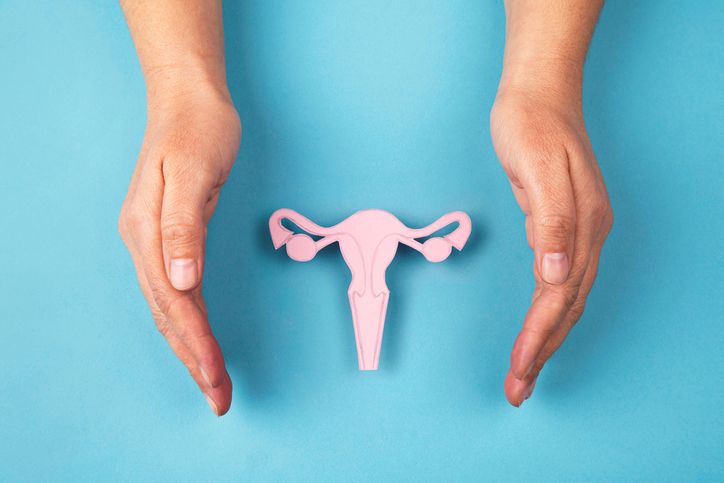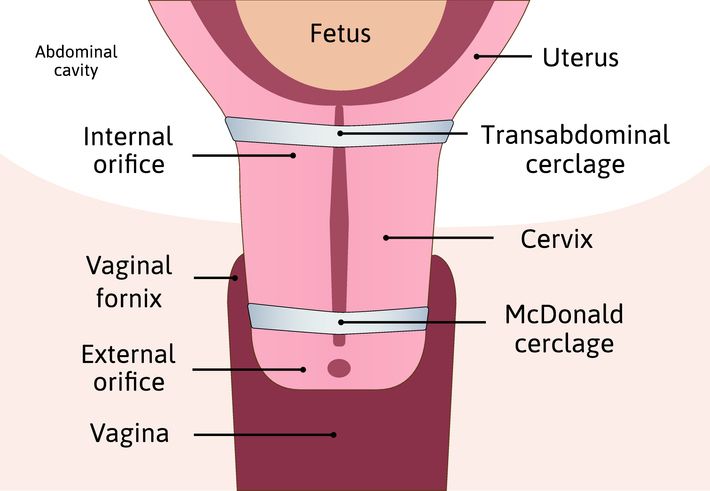- Home
- Trend
- Weight Loss Strategies
- Acne Tips
- Hair Health Information
- Blemish Removal Tips
- Acne Scar Removal Tips
- Muscle Building Techniques
- Intimate Care Tips
- Postpartum Intimate Care
- Eye Bags Wiki
- Tips for Face Slimming
- Secret of Permanent Hair Removal
- Breast Enlargement Tips
- Cure to Snoring
- Marionette Lines
- Skin-Tightening Secrets

免費體驗
BTL Emsella Treatment
1 Minute Self-Registration
Date should not be before minimal date
Many women worry about vaginal tightening because it can have an effect on their physical and mental health. People are familiar with surgery options like vaginoplasty and labiaplasty, but there are also a number of non-surgical options. In this piece, we'll talk about some of the myths regarding vaginal tightening surgery and both surgical and non-surgical ways to tighten the vaginal area and how well and safely they work. So, if you want to find ways to make your cervix tight again, keep reading!
1
What is Vaginal Tightening: Find out the Causes of Vaginal Looseness

Vaginal strengthening is the process of making the vaginal muscles and tissues firmer, stronger, and more flexible. Vaginal wall looseness can be caused by a number of different factors. It's important to remember that the vagina is made up of muscles, and like any other muscle, its tone and tightness can change for a number of reasons. Here are some potential causes of vaginal looseness:
Childbirth
Childbirth is one of the most common reasons for looseness in the uterus. The stretching and widening of the vaginal canal during birth can cause vaginal laxity to get worse for a short time or for good.
Ageing
As a woman gets older, her body's cells, including those in the vaginal area, lose their elasticity and firmness. This can make you feel like your cervix is getting looser.
Hormonal changes
Changes in vaginal tissue can be caused by changes in hormone levels, especially a drop in oestrogen levels. Oestrogen helps keep vaginal tissues healthy and flexible. When oestrogen levels drop, as they do during menopause, this can cause vaginal flexibility.
Genetics
Some women may have a genetic predisposition to looser vaginal tissues. This can be influenced by factors such as collagen production and overall tissue elasticity.
Sexual activity
Sexual activity that is frequent and forceful, especially with larger partners or objects, has the ability to stretch the various vaginal walls and tissues over time, giving the impression that the vagina is becoming looser. It's crucial to remember that the vagina is made to extend and accommodate people of different sizes, so brief variations in tightness during sexual pleasure are common.
Pelvic floor muscle weakness
The pelvic floor muscles support the vagina as well as other pelvic organs. Vaginal laxity may be a result of these muscles' weakness, which can be brought on by conditions like pregnancy, childbirth, or inactivity.
2
What are the Issues of Having Vaginal Laxity?

Vaginal laxity is when the walls of the uterus open or relax, which can make the uterus less tight and toned. This problem can make women feel and act in a number of different ways. Here are some of the main problems that come with having a loose cervix.
Reduced sexual satisfaction
Vaginal laxity can make both the person who has it and their partner less satisfied with their personal life. Because the tightness isn't as high, there might not be as much contact when you're making love. This could make you feel less and affect your sexual pleasure.
Decreased self-confidence
Vaginal flexibility can affect how a woman feels about herself and how she sees her body. If you feel like your vagina is "loose" or not as tight as you'd like, it can make you feel uncomfortable or less confident in intimate settings.
Urinary incontinence
Urinary incontinence, especially stress incontinence, can be caused by a loose cervix. When the pelvic floor muscles that support the bladder, urethra, and vagina are weak, pee can leak out when coughing, sneezing, laughing, or working out.
Reduced sensation during sexual intercourse
Laxity in the vaginal area can make sexual action less exciting and feel less stimulating. This can change the whole sexual experience, and you may need more stimulation or a different position to feel satisfied.
Changes in vaginal aesthetics
Some women may worry about how their vagina looks if they think it is loose. This worry could change how they see themselves and could affect their close relationships.
It's important to remember that different people have different ideas about what "normal" or "satisfactory" tightness feels like in the vaginal area. If vaginal dryness or laxity is making you feel bad, affecting your sexual satisfaction, or affecting your general health, you should seek methods to address the issue. Let's talk about the methods that are available.
- The Ultimate Vaginal Tightening Guide: Crystal vs Weighted Balls + 7 Effective At-Home Moves
- Don’t Panic About Abdominal Muscle Separation! Self-Check Tips + 3 Targeted Recovery Exercises
- 6 Non-Surgical Ways to Tighten Your Vagina Naturally That No One Tells You About
- Kegel Exercises: What Are They, and Are They Right for You? Everything Women Should Know About Strengthening Pelvic Floor Muscles
3
Surgical Methods for Vaginal Tightening

Vaginal tightening, sometimes referred to as a vaginal rejuvenation treatment or vaginoplasty, can be accomplished surgically using a variety of techniques. These procedures work to restore or improve the tone and tightness of the vaginal tissues and muscles. Let's get into the details about some of the procedures:
Vaginoplasty
During a vaginoplasty, the muscles around the vagina are tightened and extra vaginal lining is surgically removed. Typically, the treatment entails creating incisions in the vaginal walls and closer suturing of the muscles. This aids female doctors in tightening and narrowing the vaginal canal.
Laser vaginal rejuvenation treatment
A minimally invasive therapy called laser vaginal rejuvenation employs laser light to tighten the vaginal tissues and encourage collagen creation. Different laser technologies can be used to accomplish this surgery, which normally requires little downtime.
Labiaplasty
Labiaplasty, a surgical technique that involves modifying or lowering the size of the labia minora or labia majora, is not a surgical treatment that just specifically focused on vaginal tightening. This technique can provide the vaginal area with a more aesthetically pleasing appearance and may subtly enhance the impression of tightness.
4
Non-Surgical Methods for Vaginal Tightening

There are a number of non-surgical solutions and complementary techniques available. In comparison to surgical operations, these methods are typically less invasive, more inexpensive, and riskier. Examining a few efficient non-surgical techniques for vaginal tightening:
Kegel exercises
Kegel exercises are a well-known and successful way to build stronger pelvic floor muscles and they are a practical choice because they may be performed discretely at any time and location. These exercises can increase the tone and tightness of the vaginal area by routinely contracting and relaxing the muscles that regulate urine flow.
Pelvic floor physical therapy
Physical therapy for the pelvic floor entails working with a qualified therapist who leads you through exercises created especially to target the pelvic floor muscles. These exercises can increase tightness and control by toning and strengthening the vaginal muscles.
Vaginal cones and weights
Small, weighted devices called vaginal cones and weights are put into the vagina. The pelvic floor muscles are engaged by holding the device in place by muscle contraction, which over time results in strengthening and tightening.
Laser therapy
Laser treatment, which is also called "vaginal rejuvenation," uses laser energy to get the vaginal tissues to make more collagen. This process can make things tighter and more flexible. However, this treatment needs to be done more than once to get the best effects.
Vaginal tightening creams
When applied to the vaginal area, vaginal tightening creams are supposed to make the area tighter and more stretchy. People think that aloe vera, witch hazel, and oak gall extract, which are often found in these creams, help tone the vaginal tissues.
Yoga and pilates
Yoga and Pilates can improve the tone and flexibility of all your muscles, including the ones in your pelvic floor. These exercises help strengthen your core and improve your posture, which indirectly makes your vaginal muscles tighter.

免費體驗
BTL Emsella Treatment
1 Minute Self-Registration
Date should not be before minimal date
5
Lifestyle Changes You Should Practise Tightening Up the Defences

There are surgical ways and non-surgical ways to tighten the vaginal area, but there are also things you can do to improve the tone without having to go to an aesthetic clinic. The main goal of these changes is to prevent vaginal relaxation syndrome and stimulate collagen production.
Here are some changes to your lifestyle that might make your vaginal rejuvenation work like a charm without going through surgical treatment like vaginal tightening surgery:
Healthy weight management
Keeping a healthy weight can help improve muscle tone all over, including vaginal muscle. Extra weight can put more stress on the muscles in the pelvic floor, which could lead to vaginal flexibility. By eating well and exercising regularly, you can keep your weight in a healthy range and keep your vaginal area tight and toned.
Avoiding smoking and excessive alcohol consumption
The health and flexibility of tissues can be hurt by smoking and drinking too much alcohol. They can also mess up your hormones, which can hurt your vaginal tissue. By not smoking or drinking too much booze, or at least cutting back on it, you can help keep your vaginal tissues healthy and flexible.
Sexual activity and arousal
Regular sexual exercise, especially with arousal and natural lubrication, can improve muscle tone and increase blood flow to the area. It's important to remember that sexual exercise alone can't make a big difference in how tight your vaginal muscles are, but it can help keep your muscles healthy and your vaginal health in general.
Maintaining hormonal balance
Vaginal flexibility can be caused by changes in hormone levels, especially a drop in oestrogen. Exercising regularly, having a balanced diet, having enough sleep, and managing stress are some of the ways to support your hormonal balance.
6
What are the Myths regarding Vaginal Tightening?

Vaginal tightening has been talked about for a long time, and there are a lot of myths and misunderstandings about it. Most of the time, these myths come from cultural beliefs, stories from history, or just a lack of correct knowledge. Let's go through some of the most common myths about vaginal tightening so that you can understand this topic better.
Vaginal tightening is only for women who have given birth
One popular myth is that women who have given birth are the only ones who can get vaginal tightening. But vaginal flexibility can be caused by many things, like changes in hormones, getting older, being overweight, or even doing a lot of hard physical work. Vaginal tightening procedures aren't just for women who have just given birth; anyone who wants to improve their vaginal tone and sexual happiness can benefit from them.
Vaginal tightening is a cosmetic procedure only
Another common misunderstanding is that vaginal tightness is only done for cosmetic reasons. Many women choose vaginal tightening because they want to feel better about themselves and how they look, but it's important to know that it can also help with useful issues. Vaginal flexibility can cause problems like leaking urine, pain during sexual activity, or less sexual pleasure. Vaginal tightening treatments can help get rid of these problems and make the vaginal area look and work better.
Vaginal tightening is achieved through exercises alone
People tend to think that exercises like Kegels are the only way to tighten the vaginal muscles. Even though pelvic floor movements like Kegels can strengthen the muscles in the pelvis, they may not always tighten the vaginal wall of the uterus. People with a lot of laxity may not get the results they want from workouts alone. In these situations, medical help like laser treatments or surgery may be needed to get the amount of vaginal tightness that is wanted.
Vaginal tightening is a permanent solution
It's important to keep in mind that vaginal tightening procedures are not a lasting fix. The effects of these procedures can be different for each person and may fade over time because of normal ageing and lifestyle choices. But how long the benefits last depends on things like the type of procedure used, how each person's body works, and how well they take care of themselves after treatment. Some vaginal rejuvenation treatments or movements may be suggested to keep the vaginal tightness at the level you want.
Sexual intercourse alone can permanently tighten the vagina
It is a common belief that having sexual relations, especially with partners who are bigger, can forever tighten the vagina. Even though sexual activity can briefly increase blood circulation to tighten vaginal walls, it does not cause the vaginal tissues to get permanently tighter. The vagina is made to stretch and fit different sizes, and sexual activity is not the only thing that makes it tighter or looser.
Women can get vaginal tightening treatments to regain their confidence, improve their sexual pleasure, and deal with worries about vaginal laxity.
Whether you choose non-surgical treatments or surgical-vaginal rejuvenation, picking the right method can help achieve the desired tightness and overall well-being. One such method is Perfect Medical's BTL Emsella Treatment, which proved to be an easy and convenient procedure with immediate results!
- Vaginal Darkening: What’s Normal, What’s Not?
- 7 Factors That May Affect Your Vaginal Odor: The Last One May Surprise You
- The Emsella Chair 2026 Edition: Everything You Need to Know — How It Compares to Vaginal Tightening Devices
- Vaginal Tightening—Every Woman Deserves Intimate Care! Top 3 Ways to Improve Vaginal Laxity
7
How does Perfect Medical's BTL Emsella Treatment Help with Vagina Tightening?

Perfect Medical's BTL Emsella Treatment uses non-invasive high-intensity focused electromagnetic technology (HIFEM) technology that emits electromagnetic energy stimulating contractions at the pelvic floor muscle, energising the muscle group, and enhancing muscle control as well!
This vaginal tightening treatment is best for older women, women who have recently given birth, and women whose vaginal health is affected by things outside of their bodies and just one BTL Emsella Treatment session equals an intense Kegel workout! Moreover, no downtime is necessary and it does not require undressing, making this treatment an easy way to fit into your busy schedule!
8
Conclusion

Vaginal tightening treatments offer women the opportunity to regain confidence, enhance sexual satisfaction, and address concerns related to vaginal laxity. It offers numerous benefits, including increased sexual satisfaction, improved vaginal tone, heightened confidence, and the management of urinary incontinence.
From Kegel exercises and pelvic floor physical therapy to minimally invasive laser procedure like laser vaginal tightening surgery and lifestyle changes, women have several effective approaches to choose from, and Perfect Medical's BTL Emsella Treatment proves to be one of them. So, schedule a treatment now with Perfect Medical's BTL Emsella Treatment and head towards vaginal rejuvenation together with embracing the journey towards greater self-confidence and well-being!

免費體驗
BTL Emsella Treatment
1 Minute Self-Registration
Date should not be before minimal date
FAQ

1. Is vaginal tightening treatment painful?
During the process, vaginal tightening can cause mild pain, but the level of pain varies from person to person.
2. Are there any side effects or risks associated with vaginal tightening treatment?
Vaginal tightening treatment has some risks, just like any other medical process. But the risks are small when the procedure is done by a trained professional in a respected clinic. Possible side effects include temporary swelling, redness, or slight pain that usually goes away after a few days.
3. What is vaginal atrophy?
Vaginal atrophy is a condition that affects some women, especially after menopause. It is caused by a decrease in estrogen, which is a hormone that helps keep the vaginal tissues healthy and lubricated. When estrogen levels drop, the vaginal walls become thinner, drier, and more inflamed. This can lead to symptoms such as itching, burning, pain, dryness, and discharge in the vagina. It can also cause problems with urination and sexual intercourse.
4. Can sexual activities be compromised by SUI?
Stress urinary incontinence (SUI) is a condition that causes involuntary leakage of urine when you cough, sneeze, laugh, or exercise. SUI can affect your sex life in different ways. Some women may feel embarrassed, anxious, or less attractive because of their leakage. Some women may avoid sex or certain positions to prevent leakage. Some women may experience pain or discomfort during sex because of weakened pelvic floor muscles. SUI can also affect your partner's satisfaction and intimacy.
5. Does damaged vaginal mucosa leads to sexual dysfunction?
The vaginal mucosa is the inner lining of the vagina, which is a muscular tube that connects the uterus to the external genitalia. The vaginal mucosa consists of stratified squamous epithelium, which undergoes hormonal changes during the menstrual cycle and can form folds called rugae. The vaginal mucosa also has a rich blood supply and nerve endings, and plays a role in sexual function and pleasure. In certain cases, radiation harms the vaginal mucosa, causing stenosis and fibrosis, which can lead to sexual dysfunction, infertility, and poor pregnancy outcomes.







